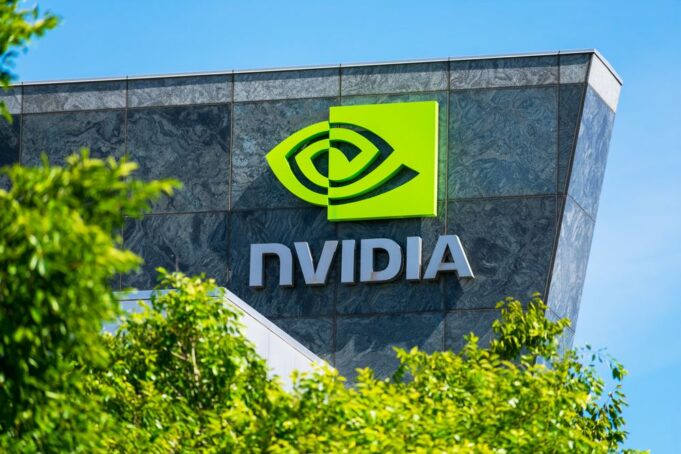In a case that underscores the complexities of modern finance and technology, the U.S. Supreme Court will review the Nvidia appeal concerning its revenue disclosures from crypto mining. The lawsuit, initially brought by investors, claims Nvidia misrepresented the extent of its earnings from the volatile crypto market, leading to accusations of securities fraud. The Court’s decision could redefine disclosure standards for companies navigating the rapidly evolving tech landscape.
The Core of the Controversy
The lawsuit dates back to 2020 when a group of Nvidia investors accused the company of failing to accurately disclose the significant impact of cryptocurrency mining on its revenue during the 2017-2018 boom. According to the plaintiffs, Nvidia understated more than $1 billion in sales from its graphics processing units (GPUs) that were purchased primarily for cryptocurrency mining. They presented these revenues as stemming from its gaming segment.
The investors argued that this misrepresentation led them to believe that Nvidia’s revenue growth was more stable and sustainable than it actually was, given the inherent volatility of the cryptocurrency market. When the crypto market experienced a sharp decline in late 2018, Nvidia’s stock price dropped significantly. It caused substantial financial losses for the investors.
Legal Proceedings and SEC Involvement
The U.S. District Court initially dismissed the lawsuit due to a lack of sufficient evidence that Nvidia had intentionally misled investors. However, the Ninth Circuit Court of Appeals later revived the case. It stated that the plaintiffs had plausibly alleged that Nvidia’s executives made materially false or misleading statements.
In a parallel action, the U.S. Securities and Exchange Commission (SEC) fined Nvidia $5.5 million in 2022 for inadequate disclosures about the impact of crypto mining on its gaming business. The SEC found that Nvidia had failed to disclose that crypto mining was a significant driver of its revenue growth during certain periods. This was a crucial piece of information for investors evaluating the company’s performance and future prospects.
Supreme Court’s Review and Potential Implications
The Supreme Court’s decision to hear Nvidia’s appeal is highly significant. It could establish a new precedent regarding the standards for pleading securities fraud. The case will likely address the level of specificity required in allegations to survive a motion to dismiss, particularly in the context of rapidly evolving and highly volatile markets like cryptocurrency.
Legal experts suggest that the outcome of this case could have far-reaching implications for how companies disclose their revenue sources, especially those involved in emerging technologies. A ruling against Nvidia could lead to stricter disclosure requirements. It would compel companies to be more transparent about the risks and sources of their earnings. Conversely, a ruling in favor of Nvidia could provide companies with more leeway in how they report revenues from high-risk ventures.
Broader Impact on Tech and Cryptocurrency Markets
This lawsuit highlights the intersection of cryptocurrency mining and the tech industry, particularly regarding the use of GPUs. It also underscores the regulatory scrutiny companies may face as they expand into new, rapidly growing sectors. The Supreme Court’s eventual ruling will be pivotal not only for Nvidia but also other companies operating in similarly dynamic and high-risk environments.
In conclusion, as the Supreme Court prepares to review Nvidia’s appeal, the tech and financial worlds await a decision that could reshape the landscape of corporate disclosures and investor protections. The case exemplifies the challenges companies face in balancing innovation with transparency in an era of unprecedented technological advancement.
Readers’ frequently asked questions
What specific allegations did the investors make against Nvidia regarding its cryptocurrency mining revenue?
The investors alleged that Nvidia misrepresented the extent of its revenue derived from cryptocurrency mining. They claimed that Nvidia understated over $1 billion in sales from GPUs used for cryptocurrency mining. Instead, it reported these revenues as part of its gaming segment. This alleged misrepresentation led investors to believe that Nvidia’s revenue growth was more stable and sustainable. They didn’t account for the volatility of the cryptocurrency market. When the crypto market declined sharply in late 2018, Nvidia’s stock price fell significantly. That caused substantial financial losses for the investors.
How did the U.S. Securities and Exchange Commission (SEC) respond to Nvidia’s revenue disclosure practices?
The SEC charged Nvidia with inadequate disclosures about the impact of cryptocurrency mining on its gaming business. The SEC found that during certain periods in fiscal year 2018, Nvidia failed to disclose that crypto mining was a significant factor driving its revenue growth from GPU sales. As a result, the SEC fined Nvidia $5.5 million for these inadequate disclosures. This emphasizes the importance of transparency in reporting revenue sources that could significantly affect investors’ decisions.
What are the potential implications of the Supreme Court’s decision on this case for other tech companies?
The Supreme Court’s decision on Nvidia’s appeal could set a significant precedent for how companies disclose their revenue sources, particularly in volatile and emerging markets like cryptocurrency. If the Court rules against Nvidia, it could lead to stricter disclosure requirements, compelling companies to be more transparent about the risks and sources of their earnings. This could enhance investor protections by ensuring more accurate and comprehensive information is available for investment decisions. Conversely, if the Court rules in favor of Nvidia, it might provide companies with more flexibility in reporting revenues from high-risk ventures. That would reduce the regulatory burden but also increase the risk of less transparency.
What Is In It For You? Action Items You Might Want to Consider
Stay Informed on Legal and Regulatory Developments
Keep a close eye on the progress of Nvidia’s case in the Supreme Court. This decision could have significant implications for the entire tech and crypto sectors, potentially leading to new disclosure standards. Regularly check updates from reliable financial news sources such as Bloomberg, Reuters, and the SEC’s website to stay ahead of any regulatory changes that might impact your investments.
Diversify Your Portfolio
Given the volatility in the cryptocurrency market and the potential for significant regulatory impacts, it’s wise to diversify your investments. Consider balancing your portfolio with assets from more stable sectors alongside your tech and crypto holdings. This strategy can help mitigate risks associated with sudden market shifts due to regulatory or market changes in the cryptocurrency industry.
Evaluate Corporate Disclosures Carefully
When investing in companies involved in emerging technologies like cryptocurrencies, pay extra attention to their financial disclosures. Scrutinize quarterly reports and look for detailed information about revenue sources and any potential risks. Companies that provide transparent and comprehensive disclosures are generally safer bets. Learning how to read and interpret these financial statements can give you a significant advantage in making informed investment decisions.









